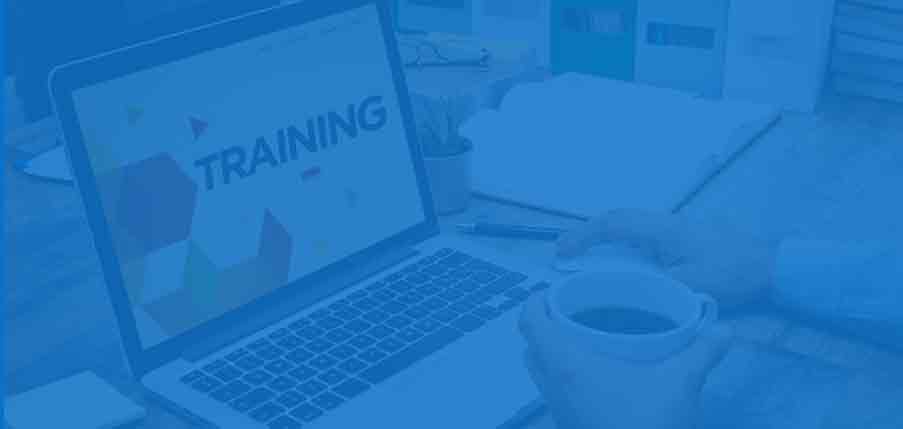
- About
- Courses Library
- Live programs
Network Cyber Course
- Live programs
- Services
- Skill Mapping
- Contact Us
| Certified Supply Chain Professional + Freight Broker/Agent Training | $ 4723.25 | Register Now |
What you will learn
Supply chain management and operations
Purchasing and supplier management
Ethical and sustainable sourcing
Inventory and demand forecasting
Resource planning systems
Process management and Six Sigma in the supply chain
Customer relationship management and globalization
The basics of freight brokering, and qualifications needed for freight brokers and freight broker agents
Transportation law, insurance, and agreements and contracts fundamentals
How to set up and run your business, including recordkeeping, determining quotes, and negotiation and marketing techniques
How you will benefit
Knowledge to pass the CSCP certification test, including coverage of topics like improving hiring potential, potential increase in salary, increased professional value, and marketability
Increase in supply chain management skills and knowledge
Increase in customer satisfaction
Expanded view of the supply chain industry
Insight into the freight broker industry to determine which avenue fits you best and will give you guidance to obtain the highest ratios for success
Graduates will be able to participate in a weekly job opportunity event called Resource Day
How the course is taught
Self-paced, online course
12 Months to complete
Open enrollment, begin anytime
220 course hours
Certified Supply Chain Professional (CSCP)
Introduction to Supply Chain Management
The Origins of Supply Chain
Supply Chain Management Accounting and Finance
Supply Chain Strategy
Supply Chain Planning and Execution
Business Strategy
Purchasing Management
Management Roles
Purchasing, Procurement
Supplier Negotiation
Outsourcing
Purchasing Decisions
Creating and Managing Supplier Relationships
Supplier Relationship Management
Supplier Relationship Development
Establishing Criteria
Distributors
Supplier Contracts
Ethical and Sustainable Sourcing
Sourcing
Sustainability
Benchmarks
Social and Environmental Impacts of Sourcing
Customer Impacts of Ethical and Sustainable Sourcing
Demand Forecasting
Demand Forecasting Concepts and Techniques
The Importance of Forecasting
Demand Planning
Forecasting Methods
Forecasting Models
Purchasing Management
Project Management
Creating and Managing Supplier Relationships
Resource Planning Systems
Inventory Management
Inventory Management
Financial Statements
Inventory and the Flow of Materials
Inventory Tracking Methods
Midterm
Process Management – Lean and Six Sigma
Lean Thinking
Kanban Systems
Quality Management and Quality Control
Six Sigma
Statistical Tools
Domestic U.S. and Global Logistics
Transportation Fundamentals
Internal Supply Chain Management
International Import Export Standards
Modes of Transportation
Corporate Social Responsibility
Customer Relationship Management
Customer Relationship Management
Customer Value
Designing a Successful CRM Program
The Supply Chain Role in Customer Satisfaction
Predicting Customer Behaviors
Global Location Decisions
Global Location Decisions
Direct Shipment Strategies
Intermediate Storage Point Strategies
Distribution Channels
Service Response Logistics
Service Industries
Supply Chain Services and Management
Methods to Improve Service Productivity
Service Location and Layout Strategies
Supply Chain Process Integration
Integration Model
Network Optimization
Overcoming Obstacles
New Product Integration
Performance Measurements
Compliance
Supply Chain Metrics
Measure, Analyze and Improve the Supply Chain
Risks
Balanced Scorecard and SCOR Model
Your Career Roadmap (optional)
Your Skills and Talents
Your Resume
The Cover Letter
Using Email and Social Media
Networking
Acing the Interview
Negotiating Your Salary
After You Land the Job
Final Exam
Freight Broker/Agent Training
The Basics of Freight Brokering
Setting Up Your Business
Setting Goals for Your Business
Setting Up Your Shipper Packet and Your Carrier Packet
Operations and Using Operations Software
Types of Freight and Exploring Niche Markets
Transportation Law
Broker-Carrier Contracts
Broker-Shipper Contracts
Insurance for Carriers and Brokers
Recordkeeping, Accounting, and Financial Management
Determining Your Rate Quotes
Carrier Relations and Solutions for Success
Sales and Profitability
Advanced Marketing
Develop Your Negotiation Skills



